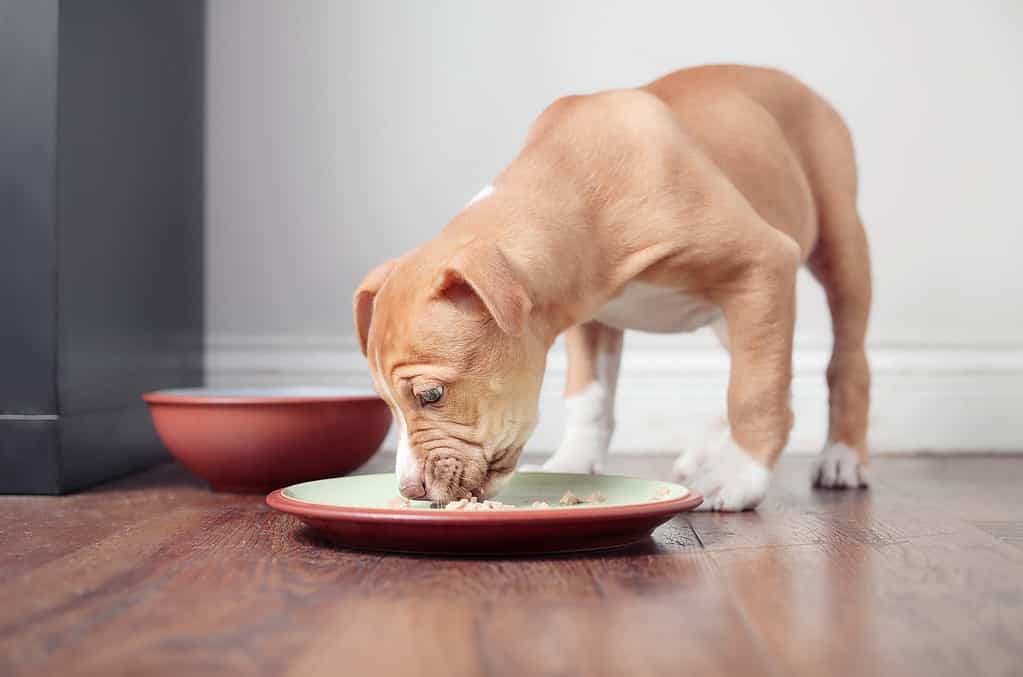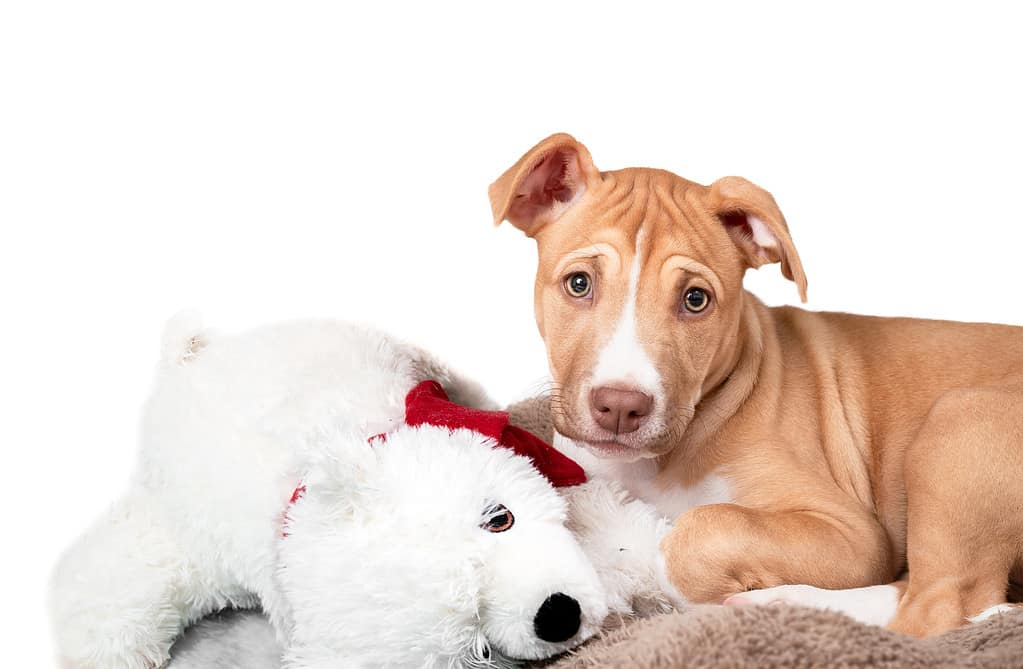Miniature Boxers are not recognized by any major kennel club. Instead, they’re created by crossing a Boxer with another small breed, like a Boston Terrier, Pug, and Beagle. Therefore, miniature Boxers are not purebred Boxers.
Like most Boxers, miniature Boxers are very playful. However, because they are mixed with another breed, they may have other personality traits, too. Some may be more laidback than a purebred Boxer.
It’s important to do your research before adopting one of these dogs. Because they aren’t purebred or recognized, they are often the target of puppy mills and backyard breeders. These breeding operations often don’t include the necessary health testing, socialization, and health care that’s required to produce quality puppies ethically.
Let’s dive into everything you need to know about this miniature breed:
Appearance

These smaller Boxers are a mixed breed, so you never know what they will look like.
©Petra Richli/iStock via Getty Images
Miniature Boxers can resemble either of their parents. Because these dogs are a mixed breed, they don’t look like your average Boxer. Instead, they can also look like the dogs their Boxer parent was bred to.
For instance, if they were mixed with a Pug, these mixed-breed puppies could look a lot like Pugs. They might also look a lot like a Boxer – enough to pass them off as a smaller, purebred Boxer.
However, they typically have a strong jawline and muscular build. They get at least some traits from their Boxer, but you never know what traits they’re going to inherit from which parent.
They can come in various colors, including fawn, brindle, and black. Of course, the exact parents they have will affect their colors substantially.
While these dogs are called “miniature,” they aren’t always very small. Size is a complicated inheritance. They usually weigh between 25 to 55 pounds. A 55-pound dog isn’t exactly “small” in most cases. Don’t expect them to be “pocket-sized” or anything of that sort.
Temperament

Just like their appearance, these dogs vary in temperament, too. Socialization and training are important to prevent aggression and fearfulness.
©Petra Richli/iStock via Getty Images
Miniature Boxers are often very similar to standard Boxers regarding their temperament. However, because they are a mixed breed, they can also inherit temperament traits from their other parent. You could end up with a dog that isn’t similar to a Boxer at all.
Typically, these dogs are playful and affectionate. Some will be more laidback than a standard boxer, though.
Socialization is vital, especially because their temperament isn’t particularly “set” as a purebred dog. You don’t know what you’ll get, so it’s best to play it safe and focus on socialization as much as possible. Socialization helps ensure that your puppy becomes used to various people and places, preventing fear and aggression later on.
Exercise & Training Needs

While these dogs are smaller, they are also exceptionally active. They work best for a more active family.
©Petra Richli/iStock via Getty Images
Miniature Boxers typically don’t need quite as much exercise as standard Boxers. However, you should still expect them to be moderately active. Some dogs might be less active, depending on who their other parent was.
Plan on giving them at least an hour of exercise each day. Walks and playtime are both great options. Smaller dogs typically need less exercise than larger ones.
Miniature Boxers are generally pretty intelligent, but this can vary, just like all their other traits. They are typically pretty easy to train, especially when they are younger. It’s important to start training right away, though. Otherwise, they can become stubborn and independent.
If you don’t start their training early, it may be harder to teach them obedience after they reach maturity.
Health
Miniature Boxers tend to be pretty healthy. They are a mixed breed, meaning they inherit traits from a wider gene pool. Their parents are genetically less similar, so this mixed breed is less likely to have genetic conditions. They’re much less inbred than purebred dogs.
However, they can still inherit health conditions. Heart disease, cancer, and allergies are all possible. They’re equally as likely to have contagious diseases, so they must receive vaccinations.
When possible, be sure that you purchase your Boxer from a reputable breeder. Sadly, this is very hard to do with a miniature Boxer, as they’re not purebred. Instead, many puppy mills produce these dogs, selling them as purebred Boxers who happen to be smaller.
Breeders who are upfront that these are mixed breeds are the best option. Ask about health testing, check-ups, and socialization. Most quality breeders also require an application and even an interview.
The photo featured at the top of this post is © Touched by light images/Shutterstock.com
Ready to discover the top 10 cutest dog breeds in the entire world?
How about the fastest dogs, the largest dogs and those that are -- quite frankly -- just the kindest dogs on the planet? Each day, AZ Animals sends out lists just like this to our thousands of email subscribers. And the best part? It's FREE. Join today by entering your email below.
Thank you for reading! Have some feedback for us? Contact the AZ Animals editorial team.







